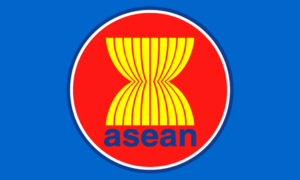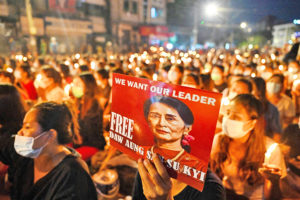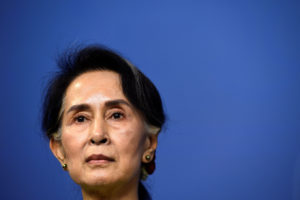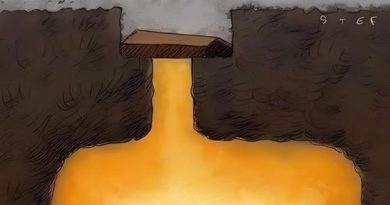OP-ED | EDITORIAL | Asean must recalibrate its strategy to end Myanmar crisis

.



FREE ASEAN –
FREE MYANMAR/CAMBODIA/THAILAND /LAOS
FREE Aung San Suu Kyi

WITH the civil strife in Myanmar worsening, ministers from the Association of Southeast Asian Nations (Asean) met in Bangkok last week to step up efforts to persuade the Yangon ruling junta to agree to a peace plan.
The junta, which ousted the duly elected government of Aung San Suu Kyi in February 2021, has been steadily losing ground to rebel forces. As the ministers were meeting, the Arakan Army, an ethnic militia that is part of the rebel alliance, captured a key army headquarters in western Myanmar.
Last August, another anti-government faction, the Myanmar National Democratic Alliance Army, seized a regional command headquarters in the northeast.
In response, the military has adopted “scorched earth” tactics and intensified aerial and artillery attacks on civilian targets.
The conflict has left at least 5,000 Myanmarese dead. “One-third of the population is in dire need of humanitarian assistance,” United Nations Secretary General António Guterres told a recent Asean meeting. “Millions have been forced to flee their homes.”
Guterres urged Myanar’s neighbors “to leverage their influence” to bring about peace.
Asean has been pressing the junta to agree to the Five-Point Consensus, a plan calling for a ceasefire, a dialogue, the designation of an Asean mediator, providing humanitarian aid, and sending a delegation to Myanmar to meet with all parties concerned.
Ads by:
Junta leader Gen. Min Aung Hlaing has shrugged off Asean’s call, confident that the bloc’s ponderous consensus-based process will work in his favor. So far, it has.
Asean itself acknowledges the “substantially inadequate progress” in implementing the peace plan. The Myanmar issue has, in fact, divided the regional grouping. Some members demand tougher action against the junta, while others prefer a more conciliatory approach.
The impasse has created a situation where there has been “no consensus to reengage or develop new approaches.”
“This organization is not designed to exclude. It is not designed to punish,” noted one political observer. “It has always been about inclusion and allowing countries to do things at their own pace. It’s not being expected to act in ways that it hasn’t before.”
The US and several Western nations tried to add to the pressure on the junta by imposing an economic embargo on the generals and their cronies, but its effect has been minimal.
China, by far, has been the most active in trying to negotiate a truce between the government forces and the insurgents for two reasons: it’s not comfortable with the prospect of Myanmarese refugees streaming across the border into its territory, and it wants the military to be more resolute in cracking down on scam centers in the country where thousands of Chinese citizens and other foreigners have been forced to work.
Beijing has even been warming up to the promise of some rebel groups to close down the scam hubs once they assume control.
Asean needs to recalibrate its approach to the Myanmar crisis.
The Bangkok meeting merely reaffirmed Asean’s support for the Five-Point Consensus. That will not be enough to move the needle significantly. The junta deserves more than just a rap on the knuckles; it must be held accountable for the violations it has committed in trying to suppress dissent.
Human rights experts propose an urgent “course correction” in the international response because current measures “remain grossly inadequate and lack the coordination and strategic targeting necessary to deliver the support the people of Myanmar need and deserve.”
“There are now 6,000 reminders that the international community is failing the people of Myanmar,” the experts appointed by the Human Rights Council said. “It is time for a change, starting with moving this disaster out of the shadows of international attention.”
Governments and donors need to step up assistance to civil society organizations documenting abuses and delivering humanitarian aid in Myanmar, they said.
Malaysian Prime Minister Anwar Ibrahim set the tone earlier by calling for “multipronged, more creative tracks” on Myanmar. “Failure to act when there is ample cause to believe that a member state is violating the spirit of the Asean Charter is a dereliction of our moral duty,” Anwar said.
Asean would be terribly remiss if it did not heed Anwar’s call.

.December 23, 2024


 Memento Maxima Digital Marketing
Memento Maxima Digital Marketing







